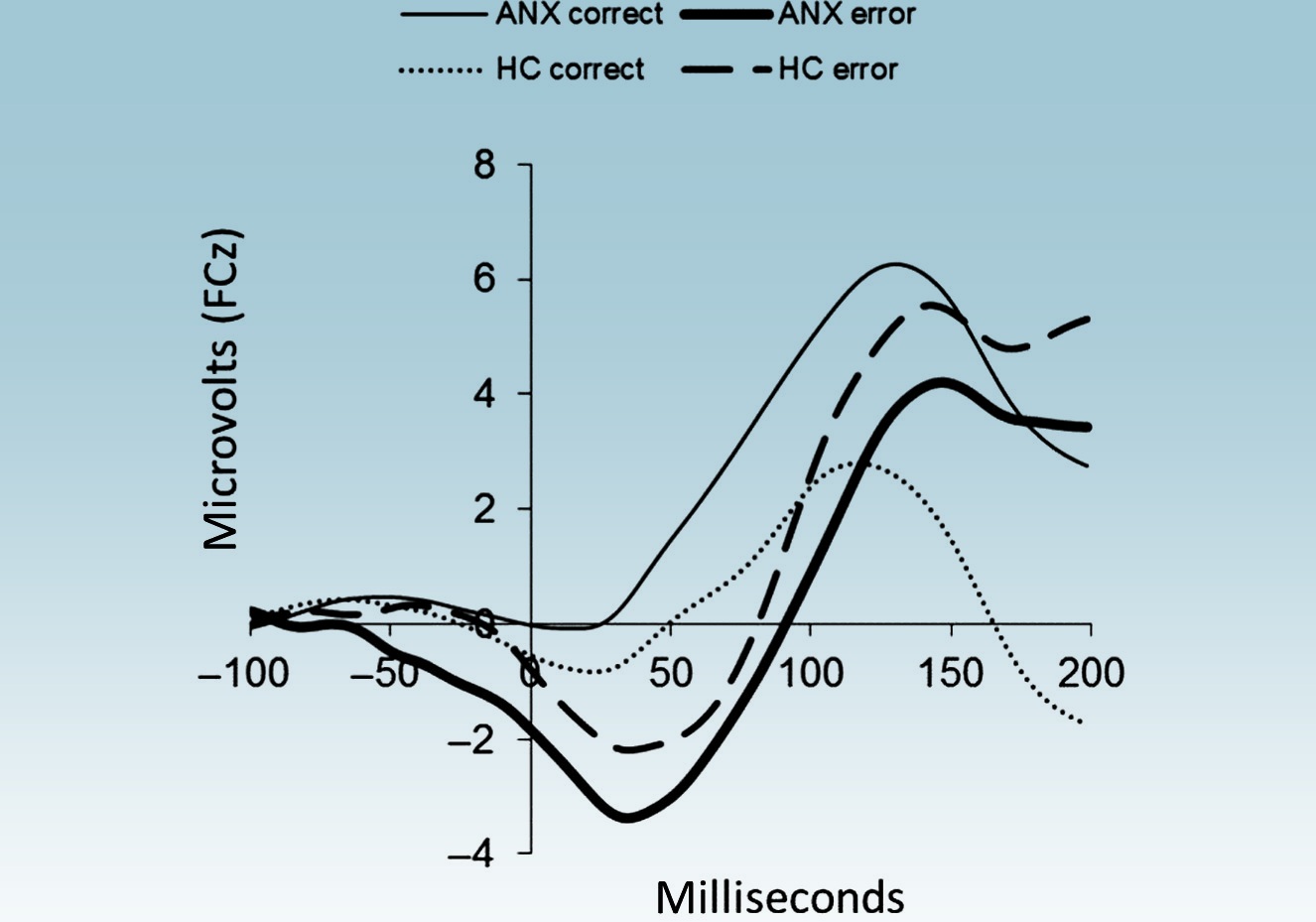Findings by Dr. Cecile Ladouceur et al. Indicate that Error-Related Negativity (ERN) Amplitude in Pediatric Anxiety Disorders Remains Elevated Following Treatment

Pediatric anxiety disorders begin in childhood or early adolescence and frequently lead to other psychiatric disorders in adulthood, including anxiety disorders and depression. Anxiety disorders are associated with an overactive action monitoring system, as indexed by a larger event-related potential named the error-related negativity (ERN). This leads researchers to hypothesize that it could represent a potential biomarker for anxiety disorders; yet, few studies have investigated whether such brain activity could change with treatment or predict treatment response. Cecile Ladouceur, PhD; Vinod Sharma, PhD; Lauren Bylsma, PhD; Jennifer Silk, PhD; Greg Siegle, PhD; Erika Forbes, PhD; and Neal Ryan, MD, et al. conducted a randomized controlled trial to determine whether ERN amplitude changes following treatment, predicts response to treatment, and varies by treatment type.
The investigators compared cognitive-behavioral therapy (CBT) for child anxiety and child‐centered therapy (CCT) and examined error‐related brain activity prior to and following treatment in a large sample (130) of young adolescents (ages 9-14) diagnosed with an anxiety disorder. ERN was also assessed in a healthy age‐matched comparison group with no lifetime DSM-IV disorders. Youth with an anxiety disorder were randomized to either a manualized CBT or a comparison CCT. Researchers assessed ERN before and after 16 sessions of treatment and within a comparable interval for the comparison group.
Youth with an anxiety disorder showed a larger ERN than the comparison group, but ERN magnitude did not significantly change following treatment, regardless of type, and baseline ERN did not predict treatment response. Post-task ratings revealed that youth with an anxiety disorder worried more about task performance feedback than the comparison group. Like the ERN, mean ratings did not significantly change following treatment; however, these ratings were not correlated with ERN amplitude.
Findings from this randomized control trial show that a larger ERN and feeling worried about performance feedback remain unchanged following treatment and are unrelated to treatment response. Such findings indicate that action monitoring systems remain overactive in anxious youth treated with psychotherapy, suggesting the need for future investigation of whether novel complimentary cognitive and emotional training programs could modify these systems.
Error-related Brain Activity in Pediatric Anxiety Disorders Remains Elevated Following Individual Therapy: A Randomized Clinical Trial
Ladouceur CD, Tan PZ, Sharma V, Bylsma LM, Silk JS, Siegle GJ, Forbes EE, McMakin DL, Dahl RE, Kendall PC, Mannarino A, Ryan ND
Journal of Child Psychology and Psychiatry, published online March 2018
